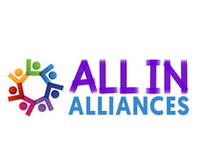

All In Alliances
Please feel free to reach out with any questions you may have.
info@allinalliances.org
All In is a network of grassroots community organizing alliances in a growing number of Connecticut cities and towns. We are neighbors working together on affordable housing, food insecurity, and a place at the table in the decisions that affect our lives.

all materials copyright © 2026
All In Alliances